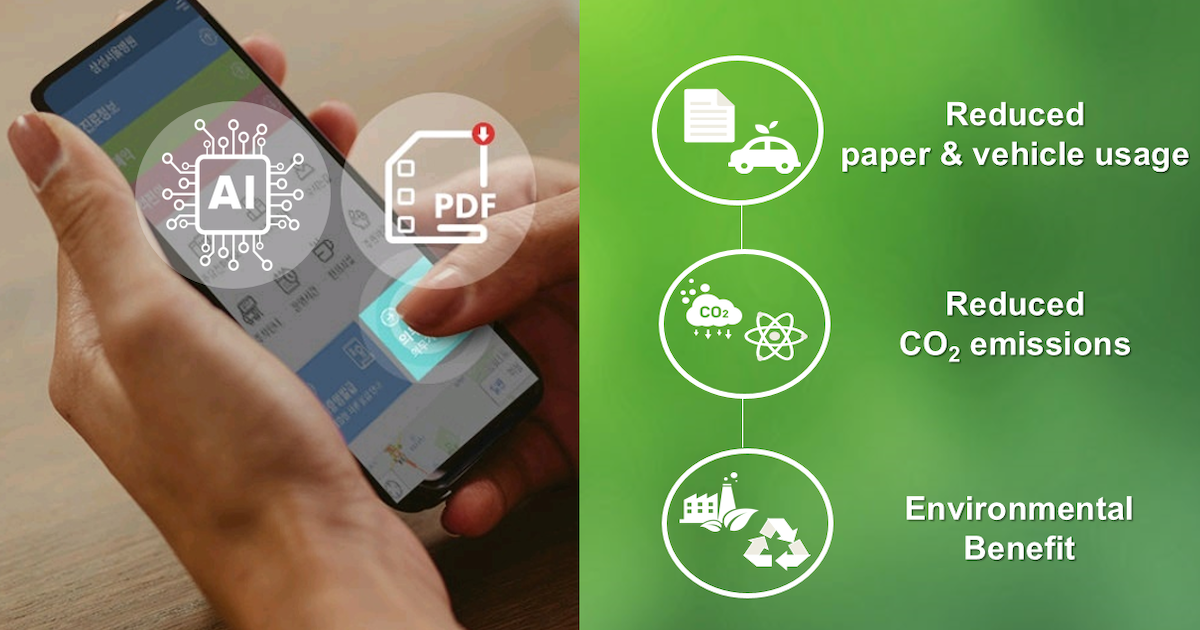Samsung Medical Center in South Korea has been automating various processes to improve the patient experience.
Tasks such as appointment management and insurance claims processing have been automated mainly through its in-house hospital information system, DARWIN. Several digital solutions have also been developed, including patient platforms for appointment setting, hospital admission, medical treatment, nursing, hospital administration, pharmacy, and radiology.
Demonstrating high-level use of the HIS, the hospital was validated for Stage 7 of the HIMSS Electronic Medical Record Adoption Model in 2023.
Over the past five years, it has progressively worked toward a 24/7 unmanned and fully automated system for issuing medical records to patients.
THE PROBLEM
In an interview with Healthcare IT News, Dr Poong-Lyul Rhee, EVP and Chief Data and Digital Officer of SMC, described the existing process of medical record issuance in Korean hospitals.
“[E]xisting medical record issuance systems operated by Korean hospitals offer limited accessibility for patients and are inefficient for hospitals. Patients who require medical record copies for various reasons, such as private insurance claims, consultations at other hospitals, submission to public institutions for proof of medical condition, and personal record-keeping, have to visit the hospital in person. This added to the time and physical burdens.”
“This was especially challenging for patients with mobility difficulties or those living in remote areas. Additionally, when a patient’s representative requested the records, they had to make a return trip over a long distance if the required documents, like the patient’s consent and proof of representation, were incomplete in order to protect sensitive personal information,” Dr Rhee added.
He also noted how providers found it challenging to handle the high demand for in-person medical records issuance, given operational inefficiencies such as additional staffing needs, expansion of physical spaces, delays in processing, and customer complaints.
PROPOSAL
In 2019, SMC implemented the first online system for issuing medical records in South Korea to address the growing demand for quick and safe medical records access.
The hospital was met with challenges, however. Wait times ran up to two hours as staff manually processed them during hospital operating hours, and applications were only received through personal computers. Patients even had to schedule separate visits solely to obtain their records. Moreover, there were additional steps to protect sensitive personal information.
“If a patient requested an incomplete record, they had to repeatedly go through the cancellation process, which felt like an unnecessary extra burden for both patients and hospital staff,” Dr Rhee noted.
MEETING THE CHALLENGE
To resolve these limitations, SMC took a phased approach to enhancing its online medical records issuance system. First, it introduced mobile and PDF generation capabilities to lower the average wait time from 50 minutes to 10 minutes.
Complex and diverse manual processes were integrated, reclassified, and streamlined to standardise workflows. Data fields were also mapped into a consistent structure.
Then, in 2023, it achieved another national milestone; it became the first hospital in South Korea to apply robotic process automation (RPA) in online medical records issuance.
Within a year, upgrades were introduced to fully automate the system from online application verification to PDF file issuance, upload, and final patient identity confirmation via AI-powered patient matching.
“Tasks such as checking the application period and details, selecting hospital records eligible for issuance based on the request, and generating the corresponding PDF files were fully automated. This significantly improved processing speed and minimised the likelihood of errors caused by manual work,” explained Dr Rhee.
As part of expediting the issuance of medical records, SMC also included an auto-tracking cycle feature in the system to notify staff automatically about incomplete records.
RESULTS
SMC’s online medical record request system has significantly evolved through a series of phased developments, resulting in a substantial increase in online issuance rates from less than 10% initially to over 30% following full automation implemented in October 2024.
Average wait times were significantly reduced to approximately five minutes. It also demonstrated 0% error rate.
Additionally, SMC saw 40 million won ($27,000) in annual paper and toner cost savings and 50 million won ($34,000) more for redistributing labour. It also received fewer complaints and “overwhelmingly positive feedback”; patient satisfaction further improved with a new cost discount policy that incentivises the use of its online services.
Furthermore, by reducing paper usage and patient travel, the online system has helped reduce approximately 4,056 tons of carbon dioxide emissions, equivalent to planting 610,000 trees.
“This AI-powered RPA advancement is not just about adopting new technology. It represents a major step toward true patient-centred digital innovation. We will continue leveraging cutting-edge technology to enhance both patient and staff experiences, driving further digital transformation in healthcare.”
Dr Poong-Lyul Rhee
Professor, Division of Gastroenterology
Executive Vice President and Chief Data and Digital Officer
Samsung Medical Center
_
Dr Poong-Lyul Rhee’s responses have been edited for brevity.

